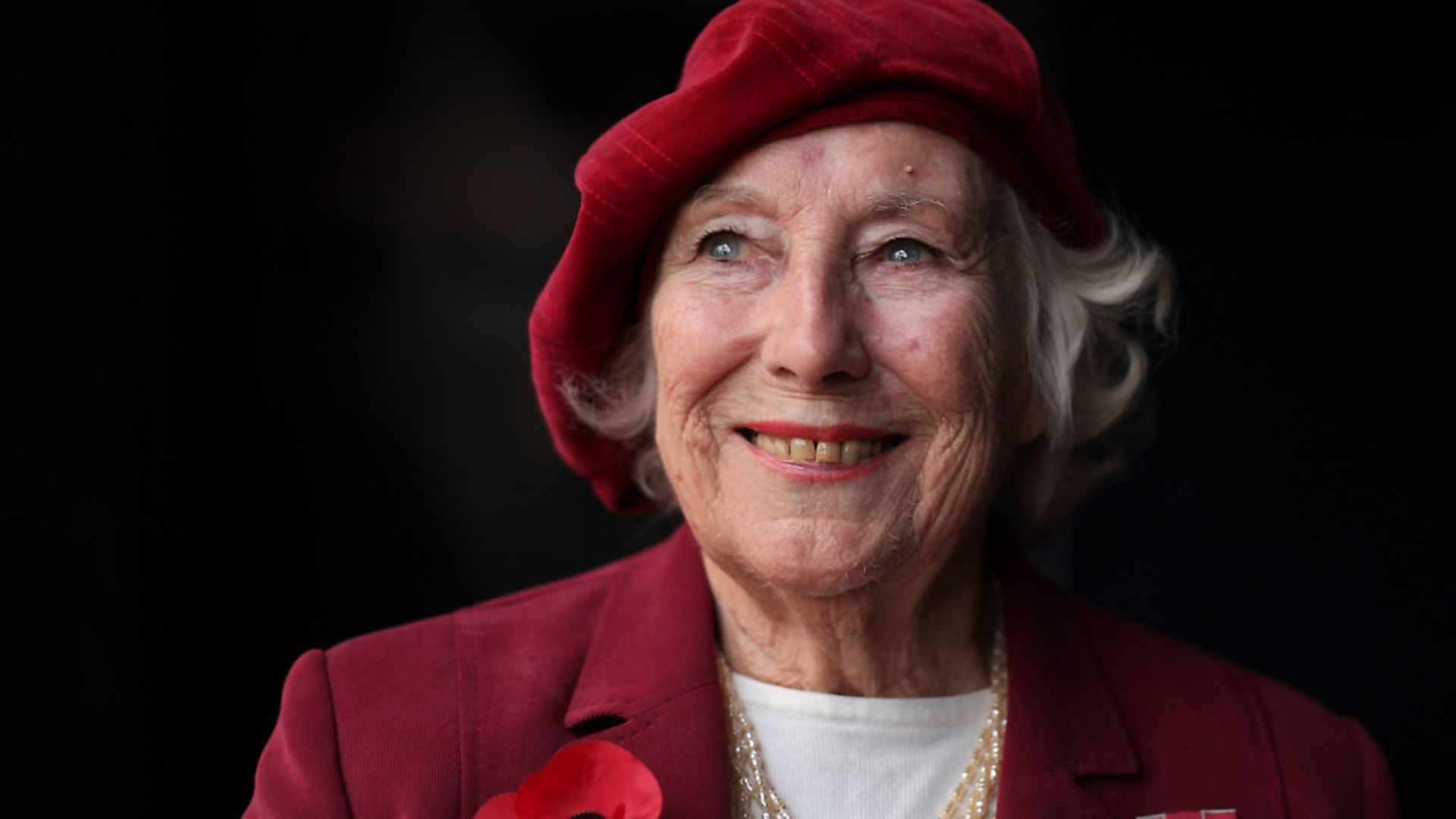
TIM WALKER recounts meeting Dame Vera Lynn, the singer of we’ll meet again.
When it was said how wonderfully the Queen had uttered the words ‘we’ll meet again’ in her recent address to the nation, one woman would have had every reason to take umbrage. Dame Vera Lynn made them her own in innumerable concerts and a radio programme called Sincerely Yours that was broadcast to the troops during the war.
Dame Vera, now 103, was of course far too demure to raise so much as an eyebrow. And anyway it’s not as if the words are holy writ. She admitted to me that, when she had first seen them written on a song sheet, she would have been startled if someone had told her people would still be going on about them decades later.
She had seen other songs come and go – and other performers – and recognised what a help it had been for her career to have become so indelibly associated with a great victory. ‘Singers today haven’t got anything like that to hang on to and all too often get forgotten,’ she told me. ‘It was my good fortune to be singing the right songs at the right time.’
I met Dame Vera in 1986 at her home in Ditchling in the Sussex countryside, and, at the time, the country was getting on with life, and its politicians – a lot of them having served in the war – saw no reason to keep dwelling on it. Indeed, it was even becoming fashionable in some quarters to question a lot of what had happened.
A book called The 1945 Revolution by William Harrington and Peter Young had provocatively claimed that ‘the sentimental sloppy muck’ put out by Dame Vera in Sincerely Yours – broadcast between 1941 and 1942 and listened to on Sunday nights by 20% of the population – had contributed to Labour’s landslide victory over Churchill in 1945. ‘Really,’ Dame Vera told me, a bit aghast that I should have raised it. ‘If any of that were true, I wouldn’t be in such demand from ex-servicemen’s organisations. And to say Sincerely Yours was political doesn’t make sense. That was the last thing on any of our minds.’
Dame Vera made it a rule then – and still does – never to talk about politics because she sees herself as a performer for the whole of the country. Her views on Brexit remain unknown. She has always, however, known her own mind and I was interested to find out to what extent her husband Harry Lewis, a clarinetist and saxophonist, had been a motivating force for her during the war years.
‘Obviously the fact I was married to someone who was Jewish gave me a particular horror of the Nazis,’ she said. Just before the war began, she had been one of the few artists to do a show for Jewish refugee children to raise money to bring them to Britain for refuge. She said simply it was the least she could do.
She had twice retired from show business, first in 1946, then in 1952 – each time it was to get on with her own life – but, when I met her 34 years ago, she had reconciled herself to being in a state of perpetual semi-retirement.
The Forces had had their flirtations with famous pin-ups at the time, but it was Dame Vera who became their sweetheart because she embodied more enduring British virtues. ‘I think it was a help quite honestly that I wasn’t such a stunning beauty as looks fade.’
She took seriously her role in life and said she was aware she had to live up to a certain ideal. ‘I’ve always been lucky to have had enough money to turn down work I’ve felt inappropriate. If people want me to do things – if it’s for a good cause or for the boys who fought for us – then I try not to let them down.’
Harry died in 1998, but Dame Vera’s career goes from strength to strength. This month she became the oldest singer to get an album into the UK top 40 with her greatest hits collection, beating her own record. She had previously been the first centenarian to make the charts when it was first released in 2017, reaching number three. ‘I don’t know how not to keep going,’ she’d told me, presciently.










